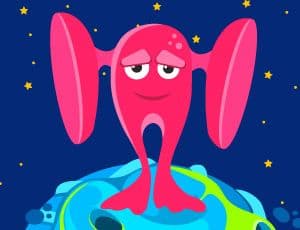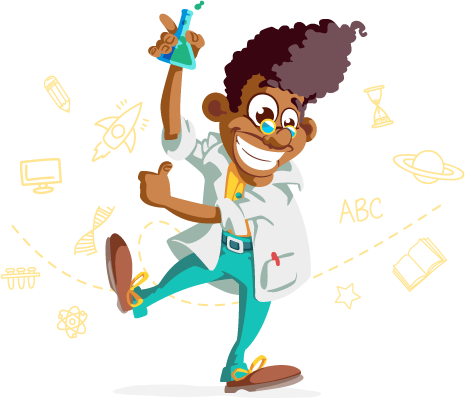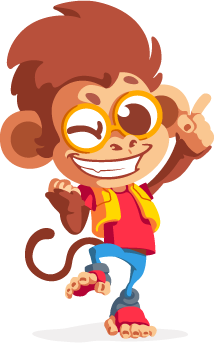Escola Games | Jogos Educativos
https://www.escolagames.com.br
Teacher's support sheet

Monstrous Puzzle
Do you want to make new friends? These monsters are from another planet from the Milky Way and are here to assemble some puzzles. In this monstrous puzzle, the monster’s image will be scrambled and you need to help it be okay again. Organize the pieces to put together the correct picture. To play with another monster, click the red arrow next to the image and have fun!

Teacher's tips
Level of Education: Elementary School - Preschool
Subject: Mathematics
Theme: Animals puzzle
Age: 05 to 08 years
The puzzle is a game that requires focus and strategy which benefits the development of attention and focus, improvement of thinking skills, motor coordination, and others. This activity is much more than just entertainment. Education experts have realized puzzles are a great ally in the teaching-learning process, especially in early childhood.
They affirm that puzzles also help in the physicological maturing. [FIM-DICA]
Learner outcomes
To stimulate learning;
To develop attention and logical thinking;
To improve motor coordination;
To exercise memory performance;
To develop different thinking skills such as: observing, comparing, analyzing, and synthesizing;
To develop self-assurance when solving problems;
To analyze forms and expand the ideas of composing and decomposing shapes;
To recognize the different positions of fragmented figures in an image;
To stimulate cooperation between classmates by promoting activities in pairs or groups.
Teachers' goals
To offer the game as a didactic resource to explore the content discussed in the classroom;
To widen students' knowledge;
To work with motor skills, focusing skills, and logical thinking;
To be able to focus
To improve motor coordination and thinking skills such as observation, comparison, analysis, and synthesis.
Suggestions of approaches for the teacher
(Approach 1) Talk to students about the definition of the puzzle;
(Approach 2) Ask students how many of them have already assembled a puzzle and how much they know about it;
(Approach 3) Print drawing for students to color using crayons, coloring glue, or coloring pencils. Then, cut then, shuffle, and tell students to assemble the image again.
(Approach 5) Cut cardboard. Then, play with it with students.
(Approach 6) Human puzzle: each student is a piece of a puzzle. The teacher should tell them what image they will form.
(Approach 7) Present students with Sudoku and plan an interactive class for them to play with.
More about the content
A while ago, kids were fascinated with puzzles. Their colors, shapes, and the challenge encouraged them to play with them. With the popularization of the internet and online games, traditional puzzles were replaced by other types of games, such as racing and fighting. But it is still possible to bring tradition and innovation together. We developed this game to promote physical, neurological, and psychomotor development, such as spatial notion and sight perception, and to widen their general knowledge.
It is a fact that puzzles provoke interaction between the two brain hemispheres. The left side coordinates logic, and the right side, creativity. The left side will choose the order to place the pieces, while the right side will use intuition and subjectivity to observe the shuffled pieces.
